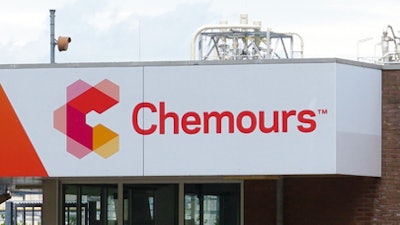
DOVER, Del. (AP) — A Delaware judge has granted the DuPont Co.'s request to dismiss a lawsuit alleging that it massively downplayed the cost of environmental liabilities imposed on spinoff company Chemours.
Vice Chancellor Sam Glasscock III ruled Monday that he has no jurisdiction to hear the case because the separation agreement between the companies clearly states that all disputes arising from the spinoff are subject to binding arbitration.
DuPont issued a statement saying it was pleased with the ruling and would take steps to enforce its rights under the separation agreement.
A Chemours spokesman said the company will appeal the ruling to the Delaware Supreme Court.
Chemours sued DuPont last year, alleging DuPont deliberately lowballed the cost of environmental liabilities Chemours would face in reimbursing DuPont for pollution related to man-made chemicals known as per- and polyfluoroalkyl substances, or PFAS.
The chemicals have been used in firefighting foam, nonstick cookware, water-repellent clothing and many other household and personal items. They sometimes are referred to as "forever chemicals" because of their longevity in the environment.
The PFAS family of chemicals, which have been associated with increased risk of cancer and other health problems, includes perfluorooctanoic acid, or PFOA, which was used in the production of Teflon.
When it spun off its former performance chemicals unit in 2015, DuPont was facing multidistrict litigation involving 3,500 personal injury claims related to PFOA. DuPont pegged the maximum liability for those cases at $128 million. Dupont settled 19 months later for $671 million, agreeing to pay half the settlement amount, and up to $125 million more toward costs of other PFOA-related litigation. Chemours paid the other half.
Chemours claims that DuPont had "a keen incentive" to downplay environmental liabilities while extracting a multibillion-dollar dividend from Chemours that would help fund a stock buyback. Chemours sought a declaratory judgment from the court limiting DuPont's indemnification rights to the maximum liabilities it certified, or for an order directing the return of the $3.9 billion dividend.
Meanwhile, Chemours, DuPont and other chemical companies are facing new lawsuits over water contamination related to PFAS chemicals.
A Chemours attorney told Glasscock last year that Chemours faces more than $200 million in costs to address environmental issues at a North Carolina manufacturing facility, 100 times more than DuPont's estimated $2 million maximum liability.
Chemours also has said that potential environmental liabilities in New Jersey far exceed the $337 million cited by DuPont at the time of the spinoff.
Chemours argued that the separation agreement was forced upon it, and that it did not consent to any of its terms.
The company conceded, however, that its board of directors approved the spin-off and separation agreement, and that Chemours executive Nigel Pond signed it.






















